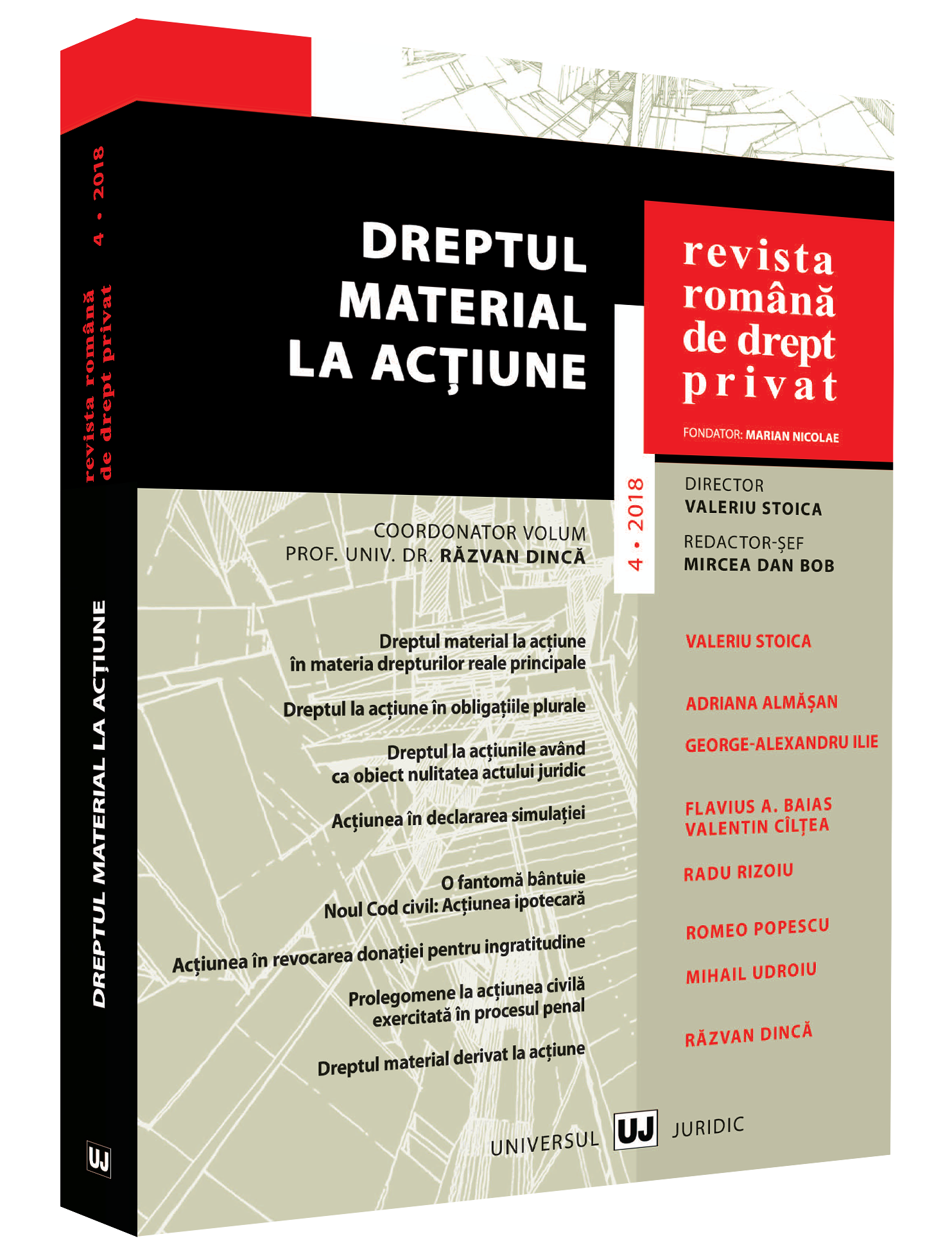Dreptul la acţiunile având ca obiect nulitatea actului juridic
Right to actions for the nullity of the legal act
Author(s): George-Alexandru IlieSubject(s): Law, Constitution, Jurisprudence, Civil Law
Published by: Universul Juridic
Keywords: nullity; material right to action; finding absolute nullity; limitation of the action to set aside; standing in the action to set aside; standing in the action for nullity;
Summary/Abstract: The regulation of the new Civil Code (2009), the first one aimed at a general framework of nullity of the civil legal act in our law, calls for the analysis of the right to actions concerning the nullity of the civil legal act. Although actions to set aside and for nullity (for finding nullity) are similar in that they represent the legal means to sanction the infringement of the law upon conclusion of the legal act, the discussion regarding the legal status of the two actions is necessarily separated on two essential axes, as a relative nullity or an absolute nullity is found. The regime of nullity is tributary to the binary concept that distinguishes by the nature of the protected interest, but with the reserve that this division is not sufficient, as nullities with a more complex regime can be declared. As legal nature, we find that the rights to actions for nullity are material rights to action. Whether or not they are doubled by primary subjective rights, this still has to be checked; this study launches, with sufficient reserves, the assumption that relative nullity is subject to a substantive right, which also has a primary component, motivated by the terminology used by the legislator and the possibility of declaring nullity amicably. The particularity of relative nullity results from the fact that, although many people can justify interest, not all are protected, and only the protected ones can take action to set aside. The particularity of absolute nullity is that, substantially, no protected scope is circumscribed and nullity can be invoked by anyone; limitation to asserting an interest concerns rather a procedural requirement. Understood as a state of the act, absolute nullity does not imply a pre-existing right, but only the possibility to find that it has operated directly under the law. The nature of the protected interest is also reflected in the limitation regime and the possibility of covering nullity. Moreover, the system of the new Civil Code seems to shape its consistency also by regulating the way nullity operates by recognizing the nullity as of right in the matter of absolute nullity, an idea which, although supported by texts, faces a fierce opposition from the current doctrine and case law.
Journal: Revista Română de Drept Privat
- Issue Year: 2018
- Issue No: 04
- Page Range: 169-206
- Page Count: 38
- Language: Romanian
- Content File-PDF

